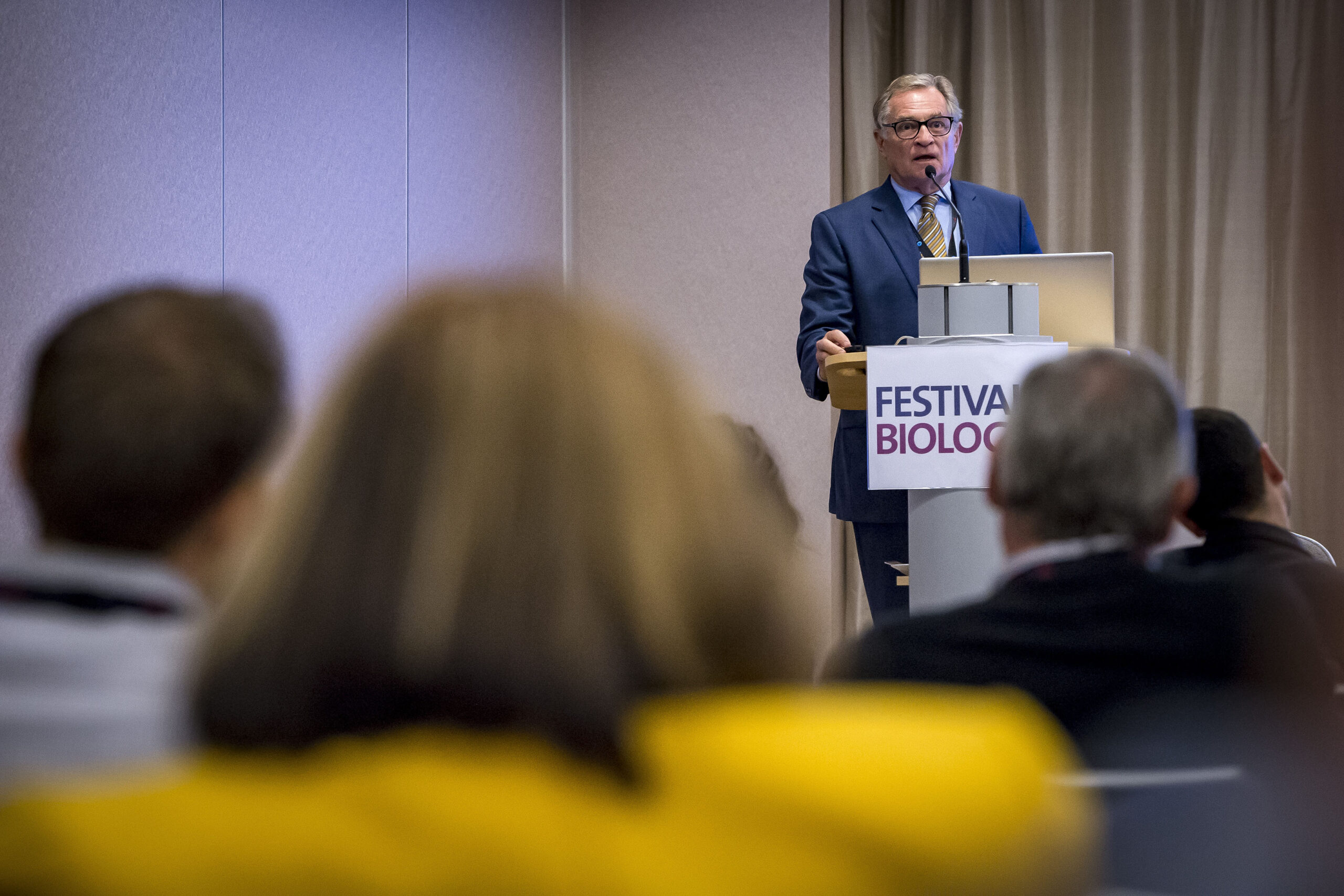On October 15th and 16th, ASBM participated in the Biosimilar World Congress: Europe 2019, part of the three-day Festival of Biologics held in Basel, Switzerland. ASBM was represented at the conference by Advisory Board Chair Philip Schneider and Steering Committee member Andrew Spiegel, executive director of the Global Colon Cancer Association.
On the first day, Dr. Schneider participated in two panels. The first was entitled “Increasing Global Patient Access to Biosimilars”. In his presentation, Dr. Schneider emphasized the role that clinicians, including physicians and pharmacists, can play as “learned intermediaries” who can balance patient-specific factors against the objectives of industry and regulators.
 Robust pharmacovigilance is also important to increase biosimilar confidence and uptake, said Schneider: “With the reliance on analytics over clinical trials for market approval there is a need for real-world evidence, including strong pharmacovigilance programs. There is general agreement that these programs are not sufficiently strong, including in Europe. This would support the need for a common language with which we communicate clinical experience with biologics and biosimilars – for example, a global system of distinguishable non-proprietary names, as the WHO has proposed.”
Robust pharmacovigilance is also important to increase biosimilar confidence and uptake, said Schneider: “With the reliance on analytics over clinical trials for market approval there is a need for real-world evidence, including strong pharmacovigilance programs. There is general agreement that these programs are not sufficiently strong, including in Europe. This would support the need for a common language with which we communicate clinical experience with biologics and biosimilars – for example, a global system of distinguishable non-proprietary names, as the WHO has proposed.”
Later in the afternoon, Dr. Schneider participated in his second panel, “Biosimilar Market Trends in the USA”. In this panel, Schneider explained the U.S. biosimilar market is complicated by two factors unique to the U.S. The first is the FDA’s standard of “interchangeable” biosimilars- those the FDA has determined will produce the same effects without additional risks after repeated switching with the originator product, relative to patients who remained on the originator product. While no biosimilar has yet been designated “interchangeable”, ASBM has taken a lead in fostering an update in pharmacy practice regulations in nearly every U.S. state to permit pharmacy-based substitution of interchangeable biosimilars in anticipation of FDA action.
The second, and arguably more important factor complicating the U.S. biosimilar market is the rebate system used by Pharmacy Benefit Managers (PBMs). Pushbacks to the PBM model are emerging with employers and individual states in the US based on the perverse incentives resulting from the rebate model, which encourages manufacturers to raise- not lower- prices in order to provide attractive rebates to the PBM and win preferred formulary placement for their product. ASBM has worked with others in the physician and patient advocacy community to highlight the effects of the PBMs’ rebate system, which distort the treatment-decision-making process.
Dr. Schneider also chaired a session on biosimilar sustainability. “There is general agreement that clinician and patient involvement in policy and decision-making is important for uptake of biosimilars, ” Schneider observed. “It is also agreed that there is a need to be mindful of the sustainability of the biologic and biosimilar market for innovation and competition.”
Andrew Spiegel participated in a panel entitled “Stakeholder Collaboration for Biosimilar Sustainability”. In the discussion, Mr. Spiegel emphasized the importance of education to increase physician familiarity and comfort, but also highlighted the importance of not bypassing or excluding the physician from treatment decisions. Spiegel cited the example of British Columbia, whose Health Minister cited Europe’s high uptake rates, yet pushed policies THAT Europe largely rejects, including forced biosimilar substitution, third-party switching of stable patients for non-medical reasons, and elimination of reimbursement of an originator biologic by government fiat.

Mr. Spiegel emphasized that most European countries enjoy high biosimilar rates while preserving physician autonomy: Most European countries do not allow automatic substitution, and reimburse for whichever among multiple products the physician prescribes, including the originator. Only Denmark reimburses ONLY winning product, after a transparent national tender process. Norway also has national tender, but does allow physicians to prescribe- and continues to reimburse- innovator products.
